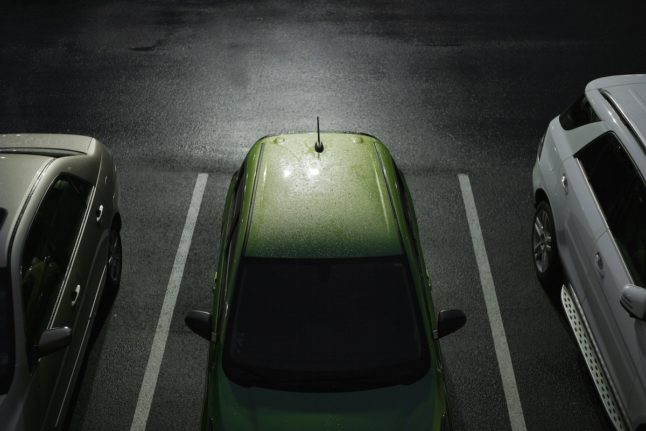In Spain in 2023 there will be 14 public holidays in total. You can find the official state bulletin (BOE) with them all listed, here.
There will be eight national holidays, four regional, and another two to be chosen on a municipal level.
The Local has broken down the national and regional public holiday dates here.
National
The following dates will be public holidays in all regions of Spain in 2023:
Friday, 7th of April – Viernes Santo (Holy Friday)
Monday, 1st of May – Día del Trabajo (Labour Day)
Tuesday, 15th of August – Asunción de la virgen (Assumption of the Virgin)
Thursday, 12th of October – Día de la Hispanidad (Spain’s National day)
Wednesday, 1st of November – Todos los Santos (All Saints’ Day)
Wednesday, 6th of December – Día de la Constitución (Constitution Day)
Friday, 8th of December – Inmaculada Concepción (Feast of the Immaculate Conception)
Monday, 25th of December – Navidad (Christmas Day)
By region
Each region can also pick four more days (with some exceptions in Ceuta, Catalonia, and the Canary Islands) to take as public holidays.
Many of them are shared across several regions, such as the 6th of January, Día de los Reyes Magos (or Three Kings Day), one of the biggest public festivos in Spain that celebrates the Epiphany.
- READ ALSO: Why Spain loves the Three Kings more than Santa
- READ ALSO: The best Three Kings events and parades around Spain
The remaining two are chosen on a municipal level.
Andalusia: 2nd January (for New Year’s Day), 6th January (Three Kings Day), 28th February (Andalusia Day), 6th April (Maundy Thursday)
Valencia: 6th January (Three Kings Day), 10th April (Easter Monday), 24th June (Feast of St. John) and 9th October (Valencia Day)
Murcia: 2nd January (New Year’s Day), 6th January (Three Kings Day), 6th April (Maundy Thursday), and 9th June (Murcia Day)
Balearic Islands: 6th January (Three Kings Day), 1st March (Balearic Islands Day), 6th April (Maundy Thursday), and 10th April (Easter Monday)
Catalonia: 6th January (Three Kings Day), 10th April (Easter Monday), 24th June (Feast of St. John), 11th September (Diada – Catalonia Day) and 26th December (St. Stephen’s Day)
Madrid: 6th January (Three Kings Day), 20th March (San José), 6th April (Maundy Thursday), 2nd May (Madrid Day)
Canary Islands: 6th January (Three Kings Day), 6th April (Maundy Thursday), and 30th May (Canary Islands Day), in addition to the following dates by island:
- 2nd February (Día de la Virgen de la Candelaria, Tenerife)
- 5th August (Día de Nuestra Señora de Las Nieves, La Palma)
- 8th September (Día de Nuestra Señora del Pino, Gran Canaria)
- 15th September (Día de Nuestra Señora de Los Volcanes: Lanzarote, La Graciosa and Fuerteventura)
- 25th September (Día de Nuestra Señora de los Reyes, El Hierro)
- 9th October (Día de Nuestra Señora de Guadalupe, La Gomera)
Cantabria: 6th January (Three Kings Day), 6th April (Maundy Thursday), 28th July (Day of the Institutions of Cantabria) and 15th September (Día de La Bien Aparecida).
Castilla La Mancha: 6th January (Three Kings Day), 6th April (Maundy Thursday), 31st May (Castile-La Mancha Day) and 8th June (Feast of Corpus Christi)
Castilla y León: 2nd January (New Year’s Day), 6th January (Three Kings Day), 6th April (Maundy Thursday), and 25th July (Feast of St. James the Apostle)
Aragón: 2nd January (for New Year’s Day), 6th January (Three Kings Day), 6th April (Maundy Thursday) and 24th April (Aragón Day)
Asturias: 2nd January (for New Year’s Day), 6th January (Three Kings Day), 6th April (Maundy Thursday), and 8th September (Asturias Day)
Navarra: 6th January (Three Kings Day), 6th April (Maundy Thursday), 10th April (Easter Monday) and 25th July (Feast of St. James the Apostle)
Extremadura: 6th January (Three Kings Day), 21st February (Shrove Tuesday), 6th April (Maundy Thursday), and 8th September (Extremadura Day)
Galicia: 6th January (Three Kings Day), 6th April (Maundy Thursday), 17th May (Galician Literature Day) and 25th July (Galicia Day)
La Rioja: 6th January (Three Kings Day), 6th April (Maundy Thursday), 10th April (Easter Monday) and 9th June (La Rioja Day)
Basque Country: 6th January (Three Kings Day), 6th April (Maundy Thursday), 10th April (Easter Monday) and 25th July (Feast of St. James the Apostle)
Ceuta: 6th January (Three Kings Day), 6th April (Maundy Thursday), 29th June (Feast of Sacrifice-Eidul Adha), and 5th August (Our Lady of Africa), 2nd September (Ceuta Day)
Melilla: 6th January (Three Kings Day), 6th April (Maundy Thursday), 21st April (Feast of Eid Fitr), 29th June (Feast of the Sacrifice – Aid Al Adha)
In order to have the full spread of holiday dates in 2023, we recommend checking with your local municipal government for the final two dates that are decided by them.



 Please whitelist us to continue reading.
Please whitelist us to continue reading.
Member comments